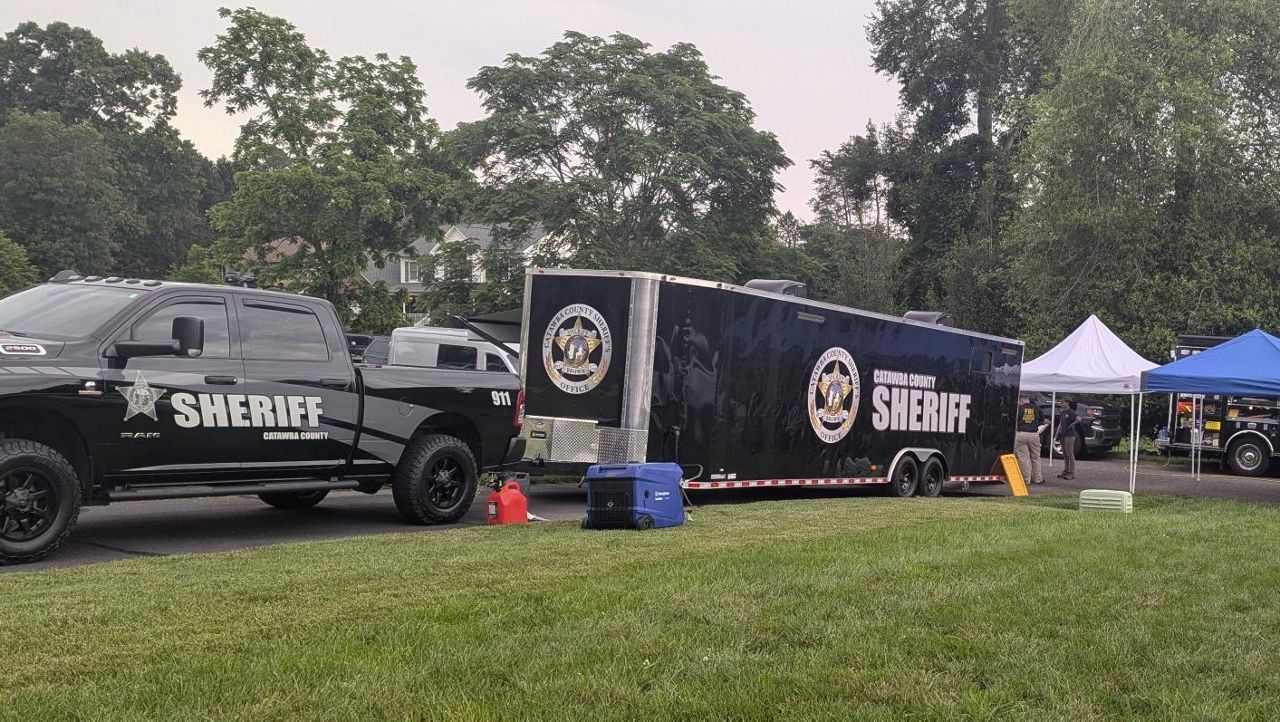RALEIGH, N.C. — The Heartbeat Law is now in effect in South Carolina. Abortion rights supporters believe this will bring more people seeking reproductive health care into North Carolina. It's a trend we could see more of as abortion remains legal in North Carolina, for now.
The Heartbeat Law is now in effect in neighboring South Carolina, making it harder for abortions to be performed after six weeks of pregnancy
The ACLU of North Carolina says it is deeply concerned about women’s reproductive rights after the Dobbs decision
Ann Webb of the ACLU is urging prosecutors in those states where abortion is now banned to not criminally prosecute physicians, health care providers or patients
The ACLU is part of the abortion rights coalition in North Carolina. It works with partners, such as Planned Parenthood and independent abortion clinics, as well as groups like Pro-Choice North Carolina and SisterSong. Spectrum News 1 spoke to a lawyer with the ACLU about the legal landscape after the overturning of Roe v. Wade.
“We are one election away from losing our bodily autonomy and our access to abortion health care in North Carolina,” said Ann Webb, senior policy counsel with the ACLU of North Carolina.“We are one election away from losing our bodily autonomy and our access to abortion health care in North Carolina,” said Ann Webb, senior policy counsel with the ACLU of North Carolina.
The ACLU of North Carolina says it’s deeply concerned about women’s reproductive rights in North Carolina and across the U.S.
Webb believes the Dobbs decision and the Supreme Court majority arguing that abortions rights are not part of the Constitution sets the nation back.
“Women were not given any rights when the Constitution was created,” Webb said. “And to suggest that we should be stuck at a point in time, when women and other people were considered property, in determining what our bodily freedom should be now, is wrong. And will not allow our country to progress into the future.”
It’s all hands on deck for state ACLUs who are responding in those states that have a trigger ban in effect.
“This is a crisis moment in those states,” Webb said. “We had some experience in Texas, understanding what it looks like to have a six-week ban, for example, in effect for the past several months. It’s terrifying frankly. We are deeply concerned for the safety and health of patients who are seeking this health care. We are deeply concerned about what may come in the future as far as criminalization and criminal prosecution of people seeking this health care or seeking to address their needs on their own.”
When it comes to the ACLU explaining and understanding this decision against women’s rights, Webb said, “This is the result of decades of work to restrict the bodily autonomy of women and other people who can become pregnant, all across the country. This ultimately indicates that the U.S. Supreme Court has been captured by individuals who have an understanding of the Constitution that does not include full equality for women.”
The ACLU has a message for prosecutors in those states where abortion is now banned:
“Prosecutors all across the country exercise their discretion every day, in using their offices’ resources, in choosing what cases need to be prosecuted to really create community safety. And we are urging prosecutors to treat these cases, as the lowest priority, these are not cases that anyone needs to be prosecuting.”
Webb wants to make sure women in North Carolina know their rights. Abortion is still legal in North Carolina despite attempts in 2019 by lawmakers to ban abortions after 20 weeks.
“The 20-week ban has been suspended. Abortion is legal up to the point of viability in North Carolina right now,” Webb said. “There would need to be a series of decisions by the federal court in order for that to change. The emphasis we want to make is that abortion is legal and safe here in North Carolina right now. We will make sure that the public understands what the law is and what their rights are as things change over the next several months.”
North Carolina House Speaker Tim Moore says anti-abortion legislation will be a top priority for Republican lawmakers in January.









